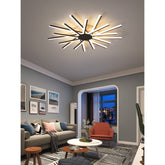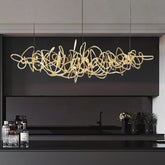The Latest Trends in Smart Home Technology: A Comprehensive Guide
Are you tired of the mundane, everyday tasks of managing your home? Are you looking for a way to make your life more convenient, efficient, and comfortable in the long run? That is where smart home technology comes in!
Smart home technology is a revolutionary way of automating and managing your home through the use of cutting-edge devices and systems. It may sound like something out of a science fiction novel, but the reality is that smart home technology has been rapidly evolving and is now more accessible and affordable than ever before.
The history of smart home technology dates back to the early 1970s when the first home automation system was developed. However, it wasn't until the early 2000s that smart home technology started gaining popularity and becoming more mainstream. Today, the global smart home market is projected to reach a value of over $158 billion by 2024, with an annual growth rate of 23.9%.
Therefore, the importance of smart home technology in the present day cannot be overstated. With the rise of remote work and the increasing need for contactless technology since the COVID-19 pandemic, smart home technology has become a necessity for many homeowners. It allows you to control your home's appliances, lighting, security, and more from your smartphone or voice command, making your life more convenient and safer.
So, if you're ready to embrace the future of home management and live a more comfortable, efficient, and secure life, keep reading! In this comprehensive guide, we'll explore the latest trends in smart home technology and how they can benefit you.
Latest Trends in Smart Home Technology
From voice assistants to AI-powered devices, smart homes have come a long way from basic security systems and thermostats. These systems allow you to control your home with simple voice commands, such as turning on the lights or adjusting the temperature. Popular voice assistants include Amazon Alexa, Google Assistant, and Apple Siri, which can integrate with a wide range of smart devices in your home, from lights to thermostats, and even smart appliances.
Speaking of appliances, smart kitchen appliances are another trend that is quickly gaining popularity. Smart refrigerators, ovens, and even coffee makers can be controlled with your smartphone or voice commands. These appliances are designed to make your life easier by providing remote control, recipe suggestions, and even grocery lists.
Home security systems have also seen significant advancements in smart technology. Smart locks, video doorbells, and security cameras can be controlled and monitored from your smartphone, giving you peace of mind and added security for your home. Plus, even many of these systems now come with AI-powered features that can detect and alert you of suspicious activity.
Energy management systems are another key trend in smart home technology too. These systems allow you to monitor and manage your home's energy usage, ultimately saving you money on your utility bills. From smart thermostats to energy-efficient lighting, these systems can help you reduce your carbon footprint and conserve energy.
Smart lighting systems are also becoming increasingly popular. These systems allow you to control your home's lighting from your smartphone or voice commands, and many can even adjust the color and brightness of the lights to match your mood or time of day.
For entertainment enthusiasts, smart home entertainment systems offer an unparalleled viewing experience. From soundbars to smart TVs, these systems can be controlled with your voice, smartphone, or tablet. Plus, many offer immersive sound and picture quality that will make you feel like you're at the movies.
Lastly, smart health and wellness devices are another emerging trend in smart home technology. From fitness trackers to smart scales, these devices can help you monitor your health and wellness goals from the comfort of your home. Plus, many of these devices can integrate with other smart systems in your home to help you achieve a healthy lifestyle.
As you can see, the latest trends in smart home technology offer a wide range of benefits for homeowners. Whether you're looking for convenience, energy efficiency, or added security, there's a smart home solution that can meet your needs.
How The Smart Home Technology Works
Let's take a closer look at the architecture and protocols that power this cutting-edge technology while understanding that smart home technology is built on a network of connected devices and systems that work together to automate and manage your home. At the heart of this network is a central hub or control panel that serves as the brain of your smart home. This hub communicates with your smart devices using various protocols, such as Wi-Fi, Bluetooth, Zigbee, and Z-Wave.
Wi-Fi is the most common protocol used in smart home technology, allowing your smart devices to connect to the internet and communicate with each other. Bluetooth is another popular protocol that is commonly used for smart speakers and entertainment systems. Zigbee and Z-Wave are low-power, wireless protocols that are designed specifically for smart home devices and provide a more reliable and secure connection.
In addition to these protocols, there are also smart home platforms such as Apple HomeKit, Google Home, and Amazon Alexa that provide a unified interface for controlling and managing your smart devices. These platforms use voice commands or mobile apps to control your smart devices, making it easy and convenient to manage your home from anywhere.
So, what are the benefits of smart home technology? First and foremost, it offers accuracy and ease of use. With the ability to control your devices with a simple voice command or tap on your phone, managing your home has never been easier. Smart home technology also offers energy efficiency, allowing you to control your home's energy usage and save money on your utility bills.
Smart home technology can also provide added security and peace of mind. With smart security systems and cameras, you can monitor your home from anywhere and receive alerts in case of any suspicious activity 24/7. Plus, smart home technology offers improved comfort and entertainment, with features such as smart lighting, climate control, and home entertainment systems.
In summary, smart home technology offers a wealth of benefits for modern homeowners. By leveraging the latest protocols and platforms, you can enjoy a more comfortable, convenient, and secure home environment in 2023.
The Future of Smart Home Technology
As smart home technology continues to evolve, we can expect to see some exciting new trends and advancements in the near future too.
One of the most significant emerging trends is the integration of artificial intelligence (AI) into smart home devices. With AI-powered devices, your smart home can learn your habits, preferences, and routines, making your home even more personalized and intuitive. From adjusting your thermostat to playing your favorite music, AI-powered devices will be able to anticipate your needs and preferences.
Another trend we can expect to see is the expansion of IoT devices. With the increasing popularity of smart home technology, we can expect to see more and more devices that are connected to the internet, from kitchen appliances being connected to security systems. This will create a more interconnected and seamless home environment, where all your devices work together seamlessly.
Of course, with the expansion of IoT devices comes security and privacy concerns too. As more devices are connected to the internet, there is a higher risk of cyber-attacks and data breaches. However, we can also expect to see advancements in security technology, such as improved encryption and authentication protocols, to mitigate these risks.
In addition to these trends, we can also expect to see advancements in smart home technology that improve energy efficiencies, such as solar-powered devices and more intelligent energy management systems. We can also expect to see new smart home devices and systems that focus on health and wellness, such as smart beds and air quality sensors.
Challenges and Limitations of Smart Home Technology
While smart home technology offers a wealth of benefits, there are also several other challenges and limitations that must be considered.
One of the biggest challenges is the issue of compatibility and interoperability between devices. With so many different manufacturers and protocols, it can be challenging to ensure that all your devices work together seamlessly. This can lead to frustrating experiences and may limit the functionality of your smart home system.
Another challenge is the cost of implementing smart home technology. While the cost of individual devices has decreased in recent years, building a comprehensive smart home system can still be quite expensive. This may make it difficult for some homeowners to justify the investment, especially if they are unsure of the long-term benefits.
In addition to these challenges, there are also potential barriers to adoption, such as concerns about complexity and privacy. With so many devices connected to the internet, there is always a risk of advanced cyber-attacks and data breaches through major complex processes. Additionally, some homeowners may be uncomfortable with the idea of having their home constantly monitored and tracked by smart devices too.
Finally, there is also the issue of technological limitations. While smart home technology has come a long way in recent years, there are still some tasks that are difficult or impossible for smart devices to perform. For example, basic yet logical tasks that require human intuition and decision-making, such as cooking or cleaning, are still best left to humans.
Despite these challenges and limitations, the future of smart home technology looks bright. As manufacturers continue to work on interoperability and security, and as consumers become more comfortable with the idea of a connected home, we can expect to see continued growth and innovation in the smart home industry in the upcoming years.
Final Words
Yes, smart home technology is rapidly evolving, offering an increasingly diverse range of benefits and opportunities in 2023. From voice assistants and AI-powered devices to energy management systems and smart health and wellness devices, the possibilities for creating a more personalized and efficient home environment are vast.
While there are certainly challenges and limitations to consider, such as compatibility issues and concerns about security and privacy, the future of smart home technology looks bright. As advancements in AI and IoT continue, and as consumers become more comfortable with the idea of a connected home, we can expect to see continued growth and innovation in the smart home industry.
Whether you're looking to save energy, enhance home security, or simply make your daily routines more convenient, smart home technology has something to offer. By keeping up with the latest trends and advancements, you can ensure that your home is at the forefront of this exciting and rapidly evolving industry.


































































































































